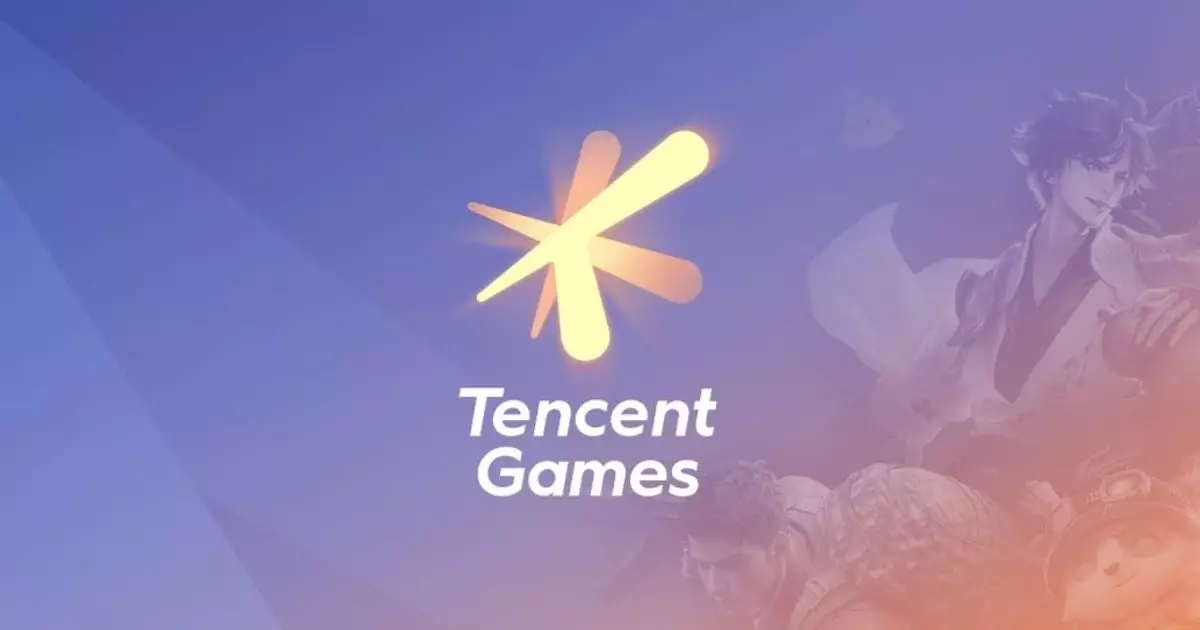In an escalating geopolitical landscape, the tension between the United States and China has permeated various sectors, notably technology and entertainment. Recently, the US federal government placed Tencent—a significant player in the global video game industry—on a list of Chinese military companies. This designation has sparked controversy, particularly due to Tencent’s vast portfolio, which includes famous games developed by Riot Games and Grinding Gear Games. As the situation unfolds, the nature of this classification raises serious questions about the implications for international business and the integrity of the tech sector.
The US government’s rationale for including Tencent in this military-associated list appears to stem from a broader strategy aimed at mitigating perceived threats posed by Chinese technological advancements. With a deep-rooted belief that civilian technology firms are inextricably linked to the Chinese military, the US asserts that companies like Tencent contribute to a “military-civil fusion” strategy. The reality of what’s constituted as military involvement can be ambiguous, especially in industries where entertainment and technology converge. The designation seems to reflect a growing wariness of China’s military developments and the potential risks associated with collaborative ventures involving Chinese firms.
Tencent’s Response
In response to this designation, Tencent has vehemently defended its position. An initial statement from a spokesperson labeled the classification as a “misunderstanding.” Subsequently, Tencent’s chairman, Ma Huateng, reinforced this sentiment through a more formal and detailed declaration. The essence of Tencent’s argument is that it operates distinctly from any military framework, contending that it should not be categorized alongside entities genuinely involved in defense activities. The company’s planned “Reconsideration Process” signals its intention not only to contest the designation but also to engage diplomatically with US authorities in hopes of rectifying what it considers an unfounded mistake.
Legal Ramifications and Precedents
Should Tencent pursue legal action to contest this designation, it will not be an unprecedented move by Chinese corporations. Companies like DJI, a leading drone manufacturer, and Hesai Technologies, known for its Lidar systems, have similarly challenged their associations with military designations through lawsuits against the US government. These cases highlight a critical aspect of trade relations: the balance between national security concerns and fair business practices. However, the outcome of such legal proceedings remains uncertain and may hinge upon broader diplomatic relations between the two superpowers.
A ruling in favor of Tencent could set a precedent that might reshape how technology companies interact with government regulations worldwide. Conversely, an unfavorable decision might embolden authorities to impose stricter controls on foreign investments in sensitive sectors.
While the inclusion in the military list currently does not prevent business dealings outside the Pentagon, it can lead to significant reputational damage and affect investor confidence. Markets tend to react strongly to regulatory changes, especially regarding companies viewed as potentially involved in defense projects. Thus, the classification may impede Tencent’s investment strategies and collaborations with international partners due to developed wariness surrounding compliance with US regulations.
Moreover, the overarching political climate could fuel further scrutiny of Chinese tech companies operating in the US, leading to a convoluted relationship marked by caution and skepticism. As governments across the globe evaluate their associations with multinational entities, the broader industry may see shifts towards more localized practices to evade similar designations.
The ongoing situation with Tencent serves as a microcosm of the complex geopolitical tensions between the US and China. As the technology race escalates, companies like Tencent face unique challenges that go beyond mere business operations; they are now ensnared in a web of national security considerations and international relations. The unfolding narrative will not only determine Tencent’s fate but may also set the stage for how the global tech landscape organizes itself in the face of increasing regulatory scrutiny and geopolitical friction. The resolution of Tencent’s situation may have implications well beyond its own operations, influencing the future of Chinese technology firms in the global market.


Leave a Reply